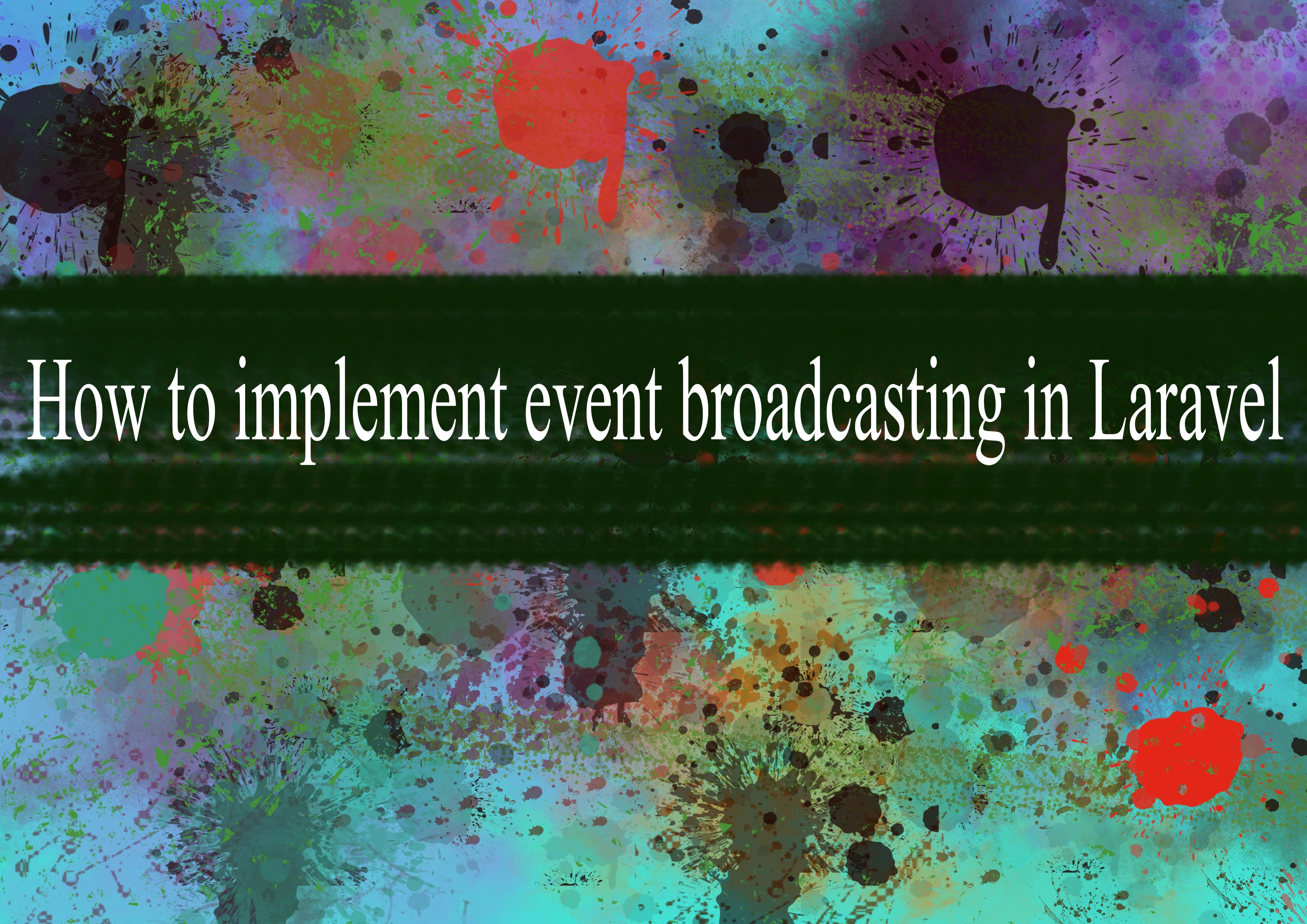How to implement event broadcasting in Laravel

In Laravel, event broadcasting is a feature that allows you to broadcast events to various frontend technologies, such as WebSocket-based applications, allowing real-time updates. To implement event broadcasting in Laravel, you'll typically use Laravel Echo, which is a JavaScript library that makes it easy to work with WebSockets and other real-time technologies.
Here's a step-by-step guide on how to implement event broadcasting in Laravel:
Set up Laravel Echo and Pusher: Laravel Echo requires a broadcasting service, and one popular choice is Pusher. First, install the necessary packages:
bashcomposer require pusher/pusher-php-server npm install --save laravel-echo pusher-jsNext, configure your
.envfile with your Pusher credentials:envBROADCAST_DRIVER=pusher PUSHER_APP_ID=your-app-id PUSHER_APP_KEY=your-app-key PUSHER_APP_SECRET=your-app-secret PUSHER_APP_CLUSTER=your-app-clusterUpdate your
config/broadcasting.phpfile to use the Pusher driver:php'default' => env('BROADCAST_DRIVER', 'pusher'),Create an Event: Generate an event using the Artisan command:
bashphp artisan make:event YourEventNameUpdate the event class to implement the
ShouldBroadcastinterface:phpclass YourEventName implements ShouldBroadcast { // ... }Configure the Event Data: Define the data that you want to broadcast in your event class. This data will be sent to the frontend when the event is broadcast:
phppublic $data; public function __construct($data) { $this->data = $data; }Broadcast the Event: Trigger the event in your controller or wherever you want:
phpevent(new YourEventName($data));Listen for the Event on the Frontend: In your frontend JavaScript code, use Laravel Echo to listen for the event:
javascriptimport Echo from 'laravel-echo' window.Echo = new Echo({ broadcaster: 'pusher', key: process.env.MIX_PUSHER_APP_KEY, cluster: process.env.MIX_PUSHER_APP_CLUSTER, }); window.Echo.channel('channel-name') .listen('YourEventName', (event) => { console.log(event.data); // Handle the event data });Make sure to replace
'channel-name'with the channel you want to listen to.Run Laravel Echo Server: If you are using Laravel Echo Server, install it globally:
bashnpm install -g laravel-echo-serverThen, run it with:
bashlaravel-echo-server startThis will create a WebSocket server to handle the broadcasting.
-
Popular Post
- How to optimize for Google's About This Result feature for local businesses
- How to implement multi-language support in an Express.js application
- How to handle and optimize for changes in mobile search behavior
- How to handle CORS in a Node.js application
- How to use Vue.js with a UI framework (e.g., Vuetify, Element UI)
- How to configure Laravel Telescope for monitoring and profiling API requests
- How to create a command-line tool using the Commander.js library in Node.js
- How to implement code splitting in a React.js application
- How to use the AWS SDK for Node.js to interact with various AWS services
- How to use the Node.js Stream API for efficient data processing
- How to implement a cookie parser middleware in Node.js
- How to implement WebSockets for real-time communication in React
-
Latest Post
- How to implement a dynamic form with dynamic field styling based on user input in Next.js
- How to create a custom hook for handling user interactions with the browser's device motion in Next.js
- How to create a custom hook for handling user interactions with the browser's battery status in Next.js
- How to implement a dynamic form with dynamic field visibility based on user input in Next.js
- How to implement a dynamic form with real-time collaboration features in Next.js
- How to create a custom hook for handling user interactions with the browser's media devices in Next.js
- How to use the useSWRInfinite hook for paginating data with a custom loading indicator in Next.js
- How to create a custom hook for handling user interactions with the browser's network status in Next.js
- How to create a custom hook for handling user interactions with the browser's location in Next.js
- How to implement a dynamic form with multi-language support in Next.js
- How to create a custom hook for handling user interactions with the browser's ambient light sensor in Next.js
- How to use the useHover hook for creating interactive image zoom effects in Next.js